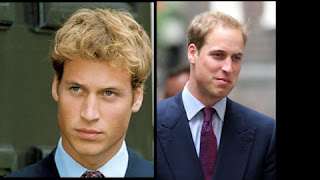Effective Treatments and Solutions for Female Hair Loss
Female hair loss can be a distressing experience for many women, impacting not only their physical appearance but also their self-esteem and confidence. Understanding the various causes and types of female hair loss is crucial in finding effective treatments and solutions.
From medical interventions to lifestyle changes and home remedies, this article explores a comprehensive guide to managing female hair loss. Discover the different approaches, products, and strategies that can help promote hair growth, improve hair health, and address the psychological aspects of dealing with hair loss.
1. Understanding Female Hair Loss: Causes and Common Types
Women's hair loss can be attributed to various factors, with hormonal imbalances, genetic predisposition, and stress playing significant roles.
1.1 Hormonal Imbalances and Hair Loss
Fluctuations in hormones, such as during pregnancy or menopause, can lead to hair thinning or shedding. Keeping hormones in check is crucial for maintaining healthy hair growth.
1.2 Genetic Factors in Female Pattern Baldness
Just like men, women can experience genetic hair loss known as female pattern baldness. Understanding your family history can help predict and manage this condition effectively.
1.3 Stress and its Impact on Hair Health
Stress doesn't just take a toll on your mental health; it can also affect your hair. Managing stress through relaxation techniques and self-care is essential for preventing hair loss.
2. Medical Treatments for Female Hair Loss
When it comes to more severe cases of hair loss, medical interventions can provide effective solutions.
2.1 Prescription Medications for Hair Regrowth
Prescription medications like minoxidil and finasteride are commonly used to stimulate hair growth and prevent further loss. Consulting with a healthcare provider can help determine the best treatment plan for you.
2.2 Hair Transplant Procedures
For those seeking a more permanent solution, hair transplant procedures can transplant healthy hair follicles to areas experiencing thinning or balding, restoring a fuller head of hair.
3. Topical Solutions and Hair Growth Products
Topical treatments and hair growth products offer non-invasive options for promoting hair growth and improving hair health.
3.1 Overview of Topical Treatments
From serums to foams, topical treatments containing active ingredients like biotin and caffeine can help nourish the scalp and stimulate hair follicles for healthier, fuller hair.
3.2 Popular Hair Growth Products and Their Effectiveness
Products like shampoos, conditioners, and hair masks formulated with ingredients like keratin and essential oils can strengthen hair, reduce breakage, and promote growth. Finding the right products for your hair type is key to seeing results.
4. Lifestyle Changes and Home Remedies for Hair Loss
In addition to medical treatments and topical solutions, making lifestyle adjustments and trying home remedies can complement your hair care routine.
4.1 Importance of a Balanced Diet for Healthy Hair
Eating a nutrient-rich diet with protein, vitamins, and minerals can support hair growth and overall hair health. Incorporating foods like salmon, eggs, and leafy greens can nourish your hair from the inside out.
4.2 DIY Hair Masks and Scalp Treatments
Pampering your hair with DIY treatments using natural ingredients like coconut oil, aloe vera, and honey can hydrate the scalp, strengthen hair strands, and promote growth. Taking time for self-care rituals can benefit both your hair and your well-being.
5. Nutritional Approaches to Promote Hair Growth
Alright, ladies, let's talk about feeding those fabulous follicles! Your diet plays a crucial role in the health of your hair. Here's a breakdown of what nutrients you need to keep your locks luscious:
5.1 Essential Nutrients for Healthy Hair Growth
Protein: Think of protein as the building blocks for your strands. Incorporate lean sources like chicken, fish, beans, and nuts into your meals.
5.2 Dietary Supplements for Hair Health
If you're not getting enough nutrients from your diet, supplements can be a handy addition to your routine:
6. Psychological Impact of Hair Loss and Coping Strategies
Alright, let's get real about the emotional rollercoaster that comes with hair loss. It's not just about strands; it's about self-confidence and self-love. Here's how to navigate the storm:
6.1 Emotional Effects of Hair Loss on Women
Hair loss can seriously mess with your mental game. It's normal to feel a range of emotions, from sadness to frustration to insecurity. Your feelings are valid, sister!
6.2 Support Systems and Counseling Services
Remember, you're not alone in this journey. Reach out to friends, family, or support groups who can provide comfort and understanding. Plus, don't hesitate to seek professional help through counseling services. Your mental health is just as important as your physical well-being.
7. Professional Styling Tips for Thinning Hair
Hey, thinning hair doesn't mean you can't rock a killer style! Here are some pro tips to amp up the volume and confidence:
Stay away from super tight hairstyles that can put stress on your strands. Opt for loose braids or buns instead.
Play with accessories like headbands, scarves, or cute clips to divert attention and add flair to your look.
Remember, your hair doesn't define your beauty.


Comments
Post a Comment
Leave a comment...in this very box. Or ask a question.